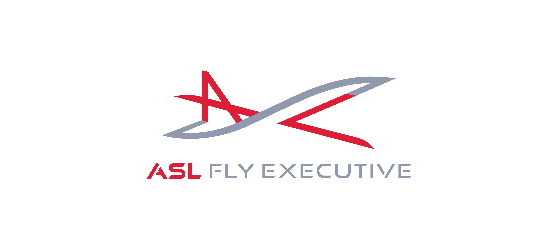ASL Group presents RISE

ASL Fly Executive
Rotterdam, Netherlands – With an increasing concern for the future of air travel, its social and environmental impact, ASL Group proudly introduces RISE (Responsible Initiatives for a Sustainable Environment), an ambitious project which depicts the vision of the company for a green and sustainable future. Also establishing a strategic partnership with Climate Neutral Group.
“With the ‘RISE’ project we aim to reduce the ecological footprint of our company and thus contribute to a cleaner, healthier world”, says Annelie Ninaber Van Eijben, Sales Executive and Project Manager at ASL Group.
“We are happy to work with ASL Group, a pioneer in its class helping to give more insight into the climate impact of flying to the company and its customers, to help develop an ambitious climate strategy and supply offsets for the remaining greenhouse gas emissions, sourced from high quality, sustainable and certified carbon reduction projects”; Jos Cozijnsen, carbon specialist with CNG.
ASL Group is constantly working on new projects to expand its business and to offer its clients innovative travel solutions. Like many other companies and airlines, the company wants to contribute to a sustainable and healthy future, both socially and ecologically.
“We realize that flying is not now and not in the near term will be climate-neutral. CO2 offsetting is an important step to prevent climate change, but it is not the only solution. That’s why we want to intensify our actions to reduce the ecological footprint of our company. This is where the ambitious ‘RISE’ project originated from.”
RISE is a company-wide project which encompasses a wide range of specific action plans, primarily aimed at:
- Limiting, reducing, where possible, and offsetting the remaining CO2 emissions generated by the company activities;
- Reducing the amount of waste generated by the company activities;
- Using socially responsible, ecological and fair trade products on board its aircraft;
- Promoting local producers and local suppliers for the deliveries of goods and consumables;
- Implementing waste-sorting and energy saving measures throughout the company’s premises as well as on board its aircraft;
- Promoting the use of sustainable energy and sustainable aviation fuel when commercially available.
One of the concrete goals of the RISE project is to take our responsibility and offset the remaining CO2 emissions generated by the company’s global activities (both in the air and on the ground), in addition to obligations of the ongoing global ICAO CORSIA program and European EU-ETS (Emission Trading System)
CO2 Offsetting – Climate Neutral Group
To this end, ASL Group has established a long-term strategic partnership with the Dutch company Climate Neutral Group, one of the longest established and most recognized providers of carbon management and offsetting services in the market. Climate Neutral Group carried out a complete audit of ASL Group’s activities in order to determine its global CO2 footprint. A first CO2 compensation plan was already implemented by ASL Group on all the flights carried out by ASL Fly Executive between Brussels and Ibiza during the Summer of 2020.
“ASL Group is planning to offset the CO2 emissions resulting from the company’s flights and activities in the future by investing in specific ecological projects, in partnership with Climate Neutral Group. As our ambitions extend further and we want to contribute mor e in the field of ecologically responsible entrepreneurship, the RISE project arose. It includes a number of concrete measures and actions to reduce the ecological footprint of our company. For example, plastic will no longer be used on board of our aircraft and the waste streams will be separated more effectively and selectively. We will also invest in sustainable and preferably fair trade products on board, such as food, drinks and personal care products. In addition, We will start looking at new types of greener fuel called SAF (Sustainable Aviation Fuel) for our aircraft and evaluate whether these can be used progressively, in replacement of the standard aviation fuel that is currently being used. Additionally, we are also looking at a number of fuel-saving measures which could be introduced during flights, such as single-engine taxiing or even more efficient flight paths” explains Annelie Ninaber van Eijben.
Business aviation and sustainability
Business Aviation has always been at the forefront of improving its sustainability practices and creating a greener future for the wider transport sector as a whole.
The Business aviation community is working towards a more sustainable future in different ways. Business aviation has the ability to connect remote regions and communities, bringing economic development to places otherwise inaccessible. The industry is also dedicated towards reducing its environmental impact through the use of technology, infrastructure and operational improvements, alternative fuels, and market-based measures.








